The era of the Vietnamese nation's rise is not only an era of strong development but also of fierce challenges. In the trend of digital transformation, technology and cyberspace become sharp tools, we not only have to face the risk of armed wars or border conflicts but also a silent but no less fierce war: The ideological war.
On the "silent front", hostile forces use technology to distort, divide, and destroy people's trust in the Party and the government. These attacks do not require guns or bullets, but they have the power to destroy ideological foundations and shake political and social stability.
Leaders of Command 86 awarded Certificates of Merit to collectives with outstanding achievements in implementing Resolution No. 35, worthy of being a "steel shield" force protecting the core values of the Party. |
In that context, a "steel shield" to protect the Party's ideological foundation is not just a concept, but a vital requirement. This is the time to rise up strongly, to build a comprehensive defense system, not only from political and legal measures but also a smooth combination of advanced technology and human intelligence. That is the "steel shield" to protect the Party's core values, helping us to stand firm against challenges in the new era.
This silent front requires every citizen and every party member to be a steadfast soldier, ready to defend ideology, defend faith and defend the country against divisive plots from outside and inside. The era of the Vietnamese nation's rise, where technology and people blend together, is both an opportunity and a challenge to build a solid "steel shield", bringing the country to new heights, not only preserving but also developing the Party's ideological foundation in the new era.
Protecting the Party's ideological foundation means protecting the system of values, Marxist-Leninist viewpoints, Ho Chi Minh's thought, along with the Party's guidelines, policies, and laws of the State. In the era of the Vietnamese nation's rise, when the country is entering a new era with the strong development of technology and globalization, this task becomes more urgent and cannot be delayed. To firmly protect the Party's ideological foundation, we not only need to prevent false arguments, distortions, and denials of the Party's leadership role, but also need to clarify its identity and core values, thereby raising the awareness of cadres, party members, and people of all walks of life. The scope of protecting the ideological foundation ranges from propaganda and political education through the media, to establishing a system for monitoring and analyzing information in cyberspace, and protecting the safety of national databases.
The era of the Vietnamese nation's rise is also the era of the Fourth Industrial Revolution, where the Internet of Things, social media, artificial intelligence and big data analysis create a global information environment that spreads rapidly, but is also the starting point of "information warfare" with fake news, deepfake videos and campaigns using botnets to spread toxic information. Hostile forces have been taking advantage of technology to amplify distorted arguments, cause public confusion and weaken the ideological resistance of society. Therefore, in addition to propaganda work, establishing a continuous monitoring mechanism, early warning and timely rebuttal through advanced technical tools is a key factor contributing to firmly protecting the ideological foundation.
Looking back at history, during the Cold War, both the Soviet Union and the United States built strong propaganda and legal systems to protect social trust. Recently, the European Union issued the “Digital Services Act” to strengthen the responsibility of digital platforms in controlling bad content, while China deployed the “Great Firewall” and proactive propaganda strategy. Other developed East Asian countries such as Japan and South Korea also applied public-private partnership mechanisms to track and handle fake news. Learning from international experience and closely combining political-ideological, legal and technological struggles will be valuable lessons for Vietnam to perfect its ideological foundation protection mechanism, in line with its institutions, culture and laws in the era of development.
In the strong flow of globalization and the digital age, the Party's ideological foundation not only faces the opportunity to be affirmed, consolidated and spread, but also faces severe global challenges. As hostile forces constantly change their forms, tools and methods of sabotage, clearly identifying their nature becomes a key factor to firmly protect the ideological battlefield.
The nature of these forces is not just reactionary organizations in exile or specific groups and individuals with political dissatisfaction in the country, but rather anti-government campaigns, behind which is a complex network of intertwined interests, including reactionary Vietnamese organizations, international media agencies, foreign non-governmental organizations with the name of "protecting democracy and human rights" and political opportunists in the country. They do not act alone but are linked together into an organized network, supported by institutions, finance, technology and media from anti-socialist forces, forming a "soft front" that directly targets the beliefs, will and political mettle of cadres, party members and the people.
If in the past, hostile forces often focused on attacking historical issues, leaders and territorial sovereignty, today, the method of sabotage has been pushed to a higher level: Directly attacking the Party's ideological foundation. They seek every way to deny Marxism-Leninism, defame Ho Chi Minh's thought, exaggerate the shortcomings of the Party and State, and at the same time sow doubts about Vietnam's path to socialism. Not starting with macro-theoretical issues, these forces have turned to exploiting sensitive issues, specific incidents arising in life, from land disputes, environmental pollution, disease response, incidents from harassment to corruption, waste, negativity to new phenomena in religion and ethnic conflicts. It is the infiltration into these personal issues that makes the sabotage arguments dangerous, because they directly affect the beliefs, "shake" the awareness of a part of the people.
In the era of the Vietnamese nation's rise, cyberspace has become a "fertile ground" for hostile forces to spread plots to undermine the Party's ideological foundation. Unlike traditional methods, attacks in the digital age do not require guns or bullets, do not need to cross physical borders, but only a few status lines, a livestream video or a sophisticated edit or a series of provocative articles. These hostile forces have been taking advantage of all technological achievements, from artificial intelligence, big data, botnets to deepfake, to form information warfare in the cyber environment, increase destructive power, and erode people's trust in the Party and the State. Their goal is not simply to defame an individual leader, but also to weaken the ideological resistance of society, disorient people, make them skeptical of the regime, and gradually push society into a state of "self-evolution" and "self-transformation".
What is particularly dangerous in this era of development is that sabotage activities are no longer limited to a specific field or scope. They are intertwined and coordinated on many fronts: from politics, economics, culture, society to cyberspace, from urban to rural areas. A video circulating on social networks can immediately create a "wave of anger" in real life; a distorted article in the international media can become a tool of diplomatic pressure; a small group calling for civil disobedience online can turn into gatherings and disturbances on the streets. It is this sophistication in coordination that makes sabotage of ideological foundations no longer a distant matter, but has penetrated into every corner of social life.
Behind all these actions is a deep plot: to destroy the people's trust in the Party, weaken the great national unity bloc, incite social instability and ultimately, to erode the political foundation and transform the regime. Hostile forces clearly understand that a society lacking political trust will easily fall into crisis. Therefore, the fight to protect the Party's ideological foundation is essentially a fight to protect trust, stability and justice in the era of the Vietnamese nation's rise.
In that context, the task is not only to detect, refute and handle each specific subject or incident, but more importantly to build a comprehensive ideological defense posture. A posture of a comprehensive nature, based on the alertness and awareness of the whole society, on the steadfast political will of cadres and party members, the ability to master technology, and the harmonious coordination between the forces: politics, law, security, education, media and diplomacy. When this combined strength is promoted, when each citizen becomes a "warrior" to protect beliefs, when each agency and organization becomes an "ideological fortress", when the whole society firmly becomes a "steel shield", then no matter how sophisticated the plots and sabotage tricks are, they cannot penetrate.
Lieutenant Colonel HO NGOC DUY, Commander of Center 386 (Command 86)
Source: https://www.qdnd.vn/phong-chong-tu-dien-bien-tu-chuyen-hoa/xay-dung-la-chan-thep-bao-ve-nen-tang-tu-tuong-trong-ky-nguyen-vuon-minh-cua-dan-toc-viet-nam-bai-1-mat-tran-khong-tieng-sung-trong-ky-nguyen-vuon-minh-846147


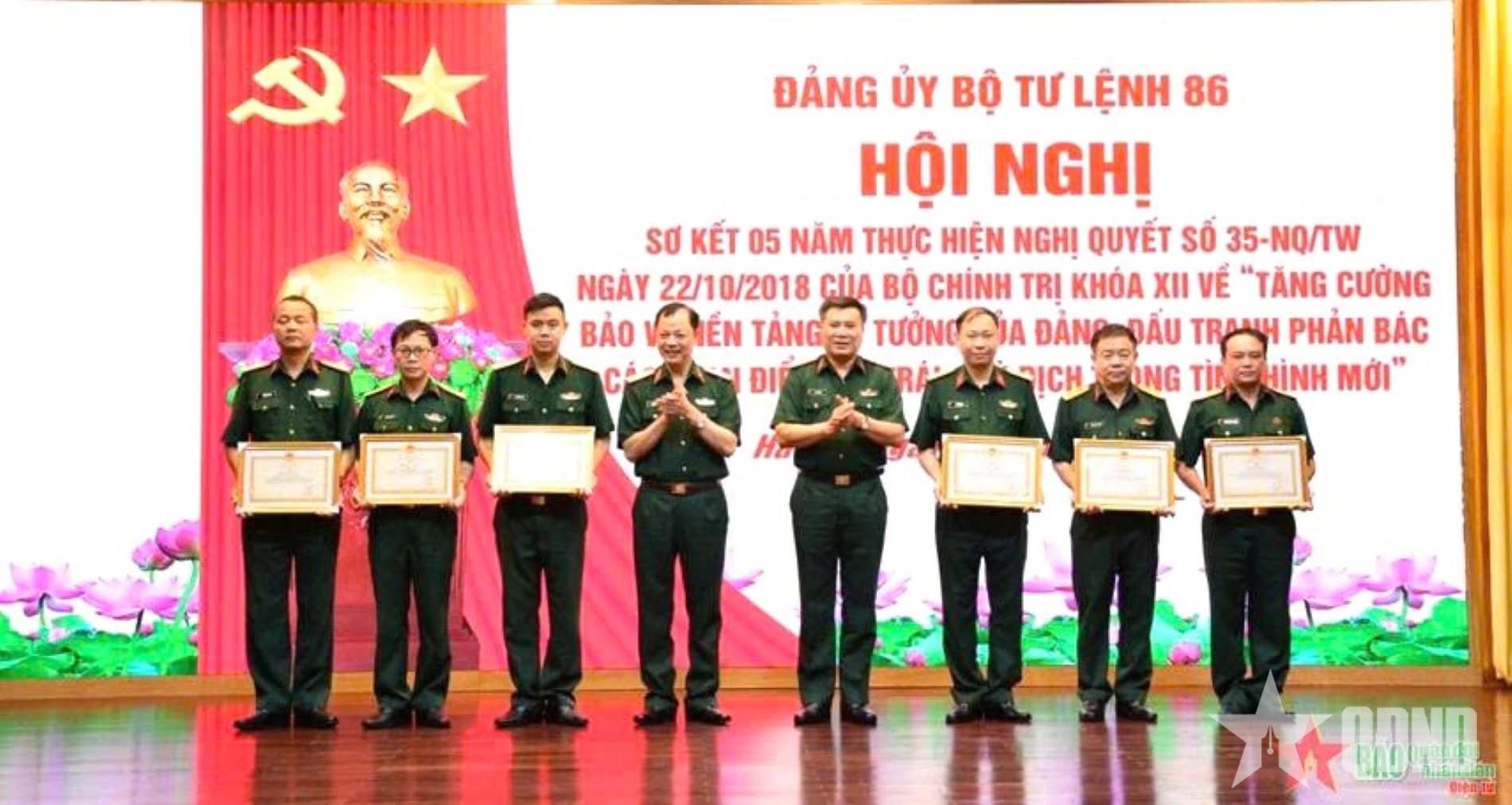
![[Photo] Solemn opening of the 12th Military Party Congress for the 2025-2030 term](https://vphoto.vietnam.vn/thumb/1200x675/vietnam/resource/IMAGE/2025/9/30/2cd383b3130d41a1a4b5ace0d5eb989d)
![[Photo] General Secretary To Lam receives US Ambassador to Vietnam Marc Knapper](https://vphoto.vietnam.vn/thumb/1200x675/vietnam/resource/IMAGE/2025/9/29/c8fd0761aa184da7814aee57d87c49b3)
![[Photo] The 1st Congress of Phu Tho Provincial Party Committee, term 2025-2030](https://vphoto.vietnam.vn/thumb/1200x675/vietnam/resource/IMAGE/2025/9/30/1507da06216649bba8a1ce6251816820)

![[Photo] General Secretary To Lam, Secretary of the Central Military Commission attends the 12th Party Congress of the Army](https://vphoto.vietnam.vn/thumb/1200x675/vietnam/resource/IMAGE/2025/9/30/9b63aaa37ddb472ead84e3870a8ae825)

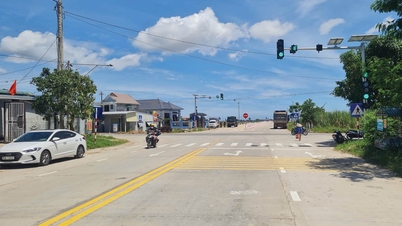





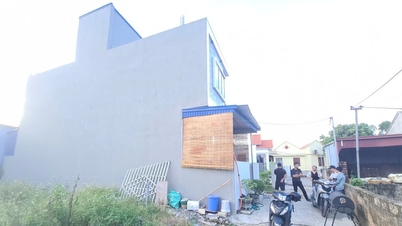




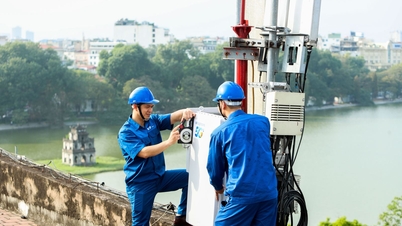


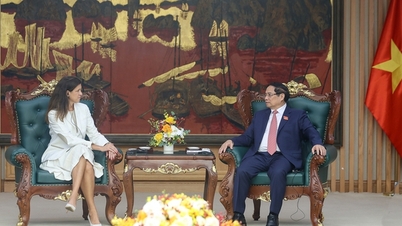

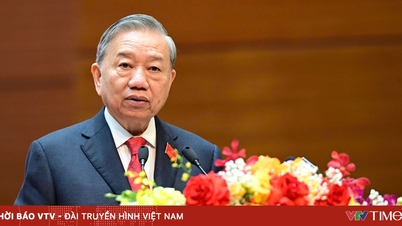





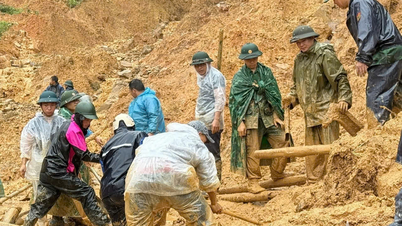
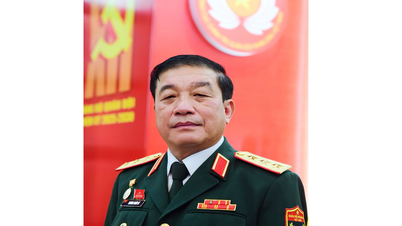
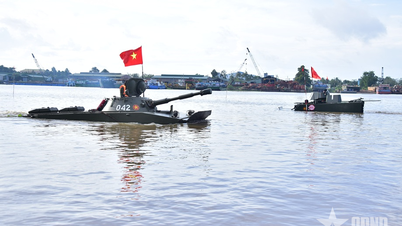



![[Photo] General Secretary To Lam attends the ceremony to celebrate the 80th anniversary of the post and telecommunications sector and the 66th anniversary of the science and technology sector.](https://vphoto.vietnam.vn/thumb/1200x675/vietnam/resource/IMAGE/2025/9/29/8e86b39b8fe44121a2b14a031f4cef46)



























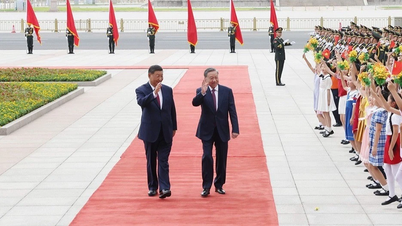
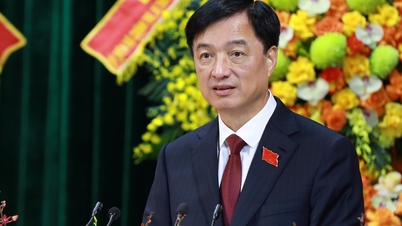
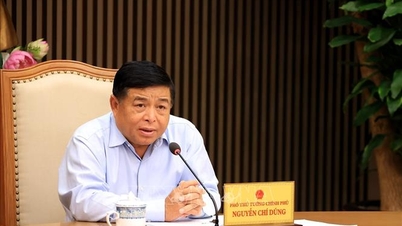







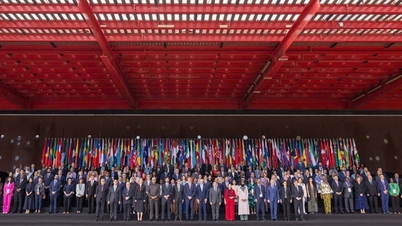
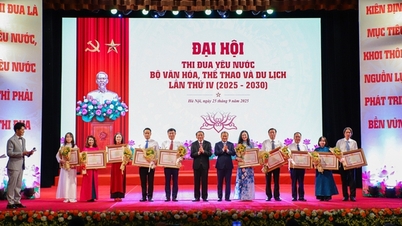
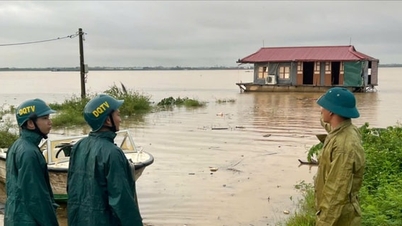

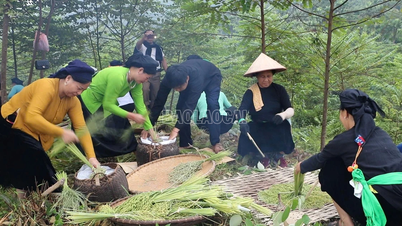
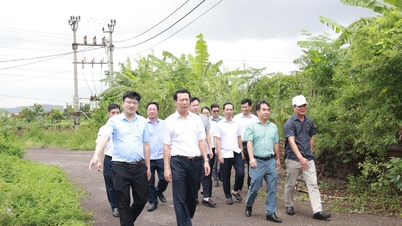



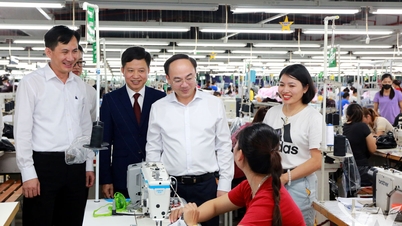

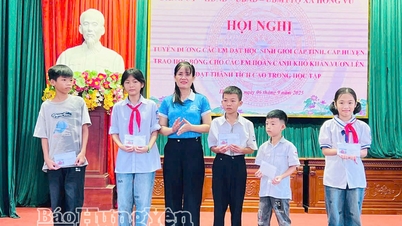











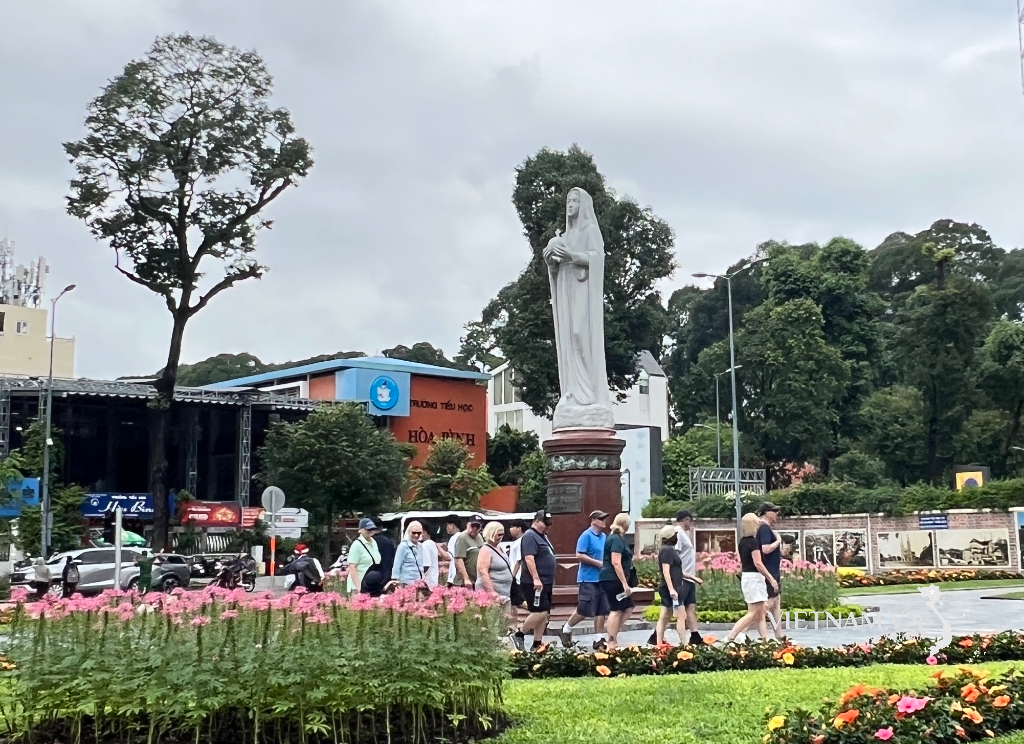


Comment (0)